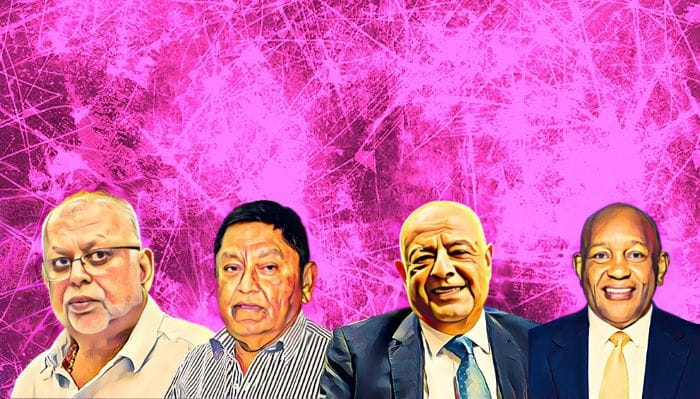Key Points
- Sudhir Ruparelia leads Uganda’s wealth list, building a diversified empire in real estate, banking, and hospitality that mirrors the country’s rising private sector influence.
- Industrialists like Sikander Lalani and Amos Nzeyi have powered Uganda’s manufacturing boom, fueling job creation and expanding regional trade networks.
- A younger class of tycoons like Hamis Kiggundu is injecting tech-driven innovation into traditional sectors.
Uganda, often called the pearl of Africa, is quietly emerging as one of East Africa’s most resilient and promising economies. With a young, fast-growing population and major investments pouring into infrastructure, oil, fintech, and manufacturing, the country is steadily carving out its place as a rising regional hub, even if it sometimes gets overshadowed by bigger neighbors like Kenya and Tanzania.
The country’s progress is being powered by government-backed projects such as the East African Crude Oil Pipeline (EACOP), major efforts to expand electricity access, and the rapid digital transformation of financial services. Mobile money, fintech innovation, and a wave of banking reforms are reshaping the financial landscape, opening new doors for broader inclusion and economic participation.
At the heart of this transformation are Uganda’s wealthiest individuals — entrepreneurs, industrialists, and financiers who have built not just their own fortunes, but also helped shape the country’s modern economy. Leading the way is Sudhir Ruparelia, the real estate tycoon behind the Ruparelia Group, whose businesses in banking, education, hospitality, and agriculture have made him a symbol of private sector success in Uganda.
Veteran business leaders like Karim Hirji, a major player in real estate and hospitality, and Sikander Lalani, the steel magnate behind Roofings Group, have played key roles in Uganda’s industrial growth and urban development. A younger generation is also making its mark, with bold figures like Hamis Kiggundu, who is known for his ambitious real estate projects and tech-driven investments, bringing fresh energy and new ideas into traditional sectors.
Across industries like manufacturing, logistics, telecoms, and pharmaceuticals, Uganda’s richest citizens are not just building wealth, they’re driving industrial growth, boosting regional trade, and creating much-needed jobs. Their companies are helping to weave Uganda deeper into global value chains and positioning the country for even bigger opportunities ahead.
As Uganda gears up for a new chapter of oil-driven growth, digital innovation, and stronger regional ties, these 15 business heavyweights are leading the charge. Billionaires.Africa presents Uganda’s top 15 richest individuals, showcasing the industries they dominate, the investments they’ve made, and the growing influence they wield both at home and across East Africa.
- Sudhir Ruparelia
Net Worth: $250 million
Industry: Real Estate, Finance, Education, Hospitality, Agriculture
Sudhir Ruparelia, Uganda’s richest man, built a diversified empire through Ruparelia Group, spanning real estate, education, banking, and hospitality. After returning to Uganda in 1985 with $25,000 saved from odd jobs in the UK—following Idi Amin’s expulsion of Asians in 1972—he launched a beer import business and foreign exchange bureau, later founding Crane Bank, once among Uganda’s top lenders. Though Crane Bank was controversially taken over in 2016, Uganda’s Supreme Court ordered its return in 2022. Dubbed the “Landlord of Kampala,” Ruparelia owns more than 200 commercial properties and premium hotels under Speke Group, including the decisive acquisition of the 14-storey Lotis Towers (now Arie Towers), which was finalized in 2024. Once valued at $800 million in 2015, his fortune has shrunk to around $250 million, reflecting both market volatility and mounting liabilities across his business portfolio across sub-Saharan Africa. His holdings include Premier Roses, Kampala International School, Victoria University, and Goldstar Insurance. In 2025, he faced personal tragedy with the loss of his only son, Rajiv. Still, Ruparelia remains an enduring force in East Africa’s private sector, with a legacy built on resilience and expansive investment.
- Karim Hirji
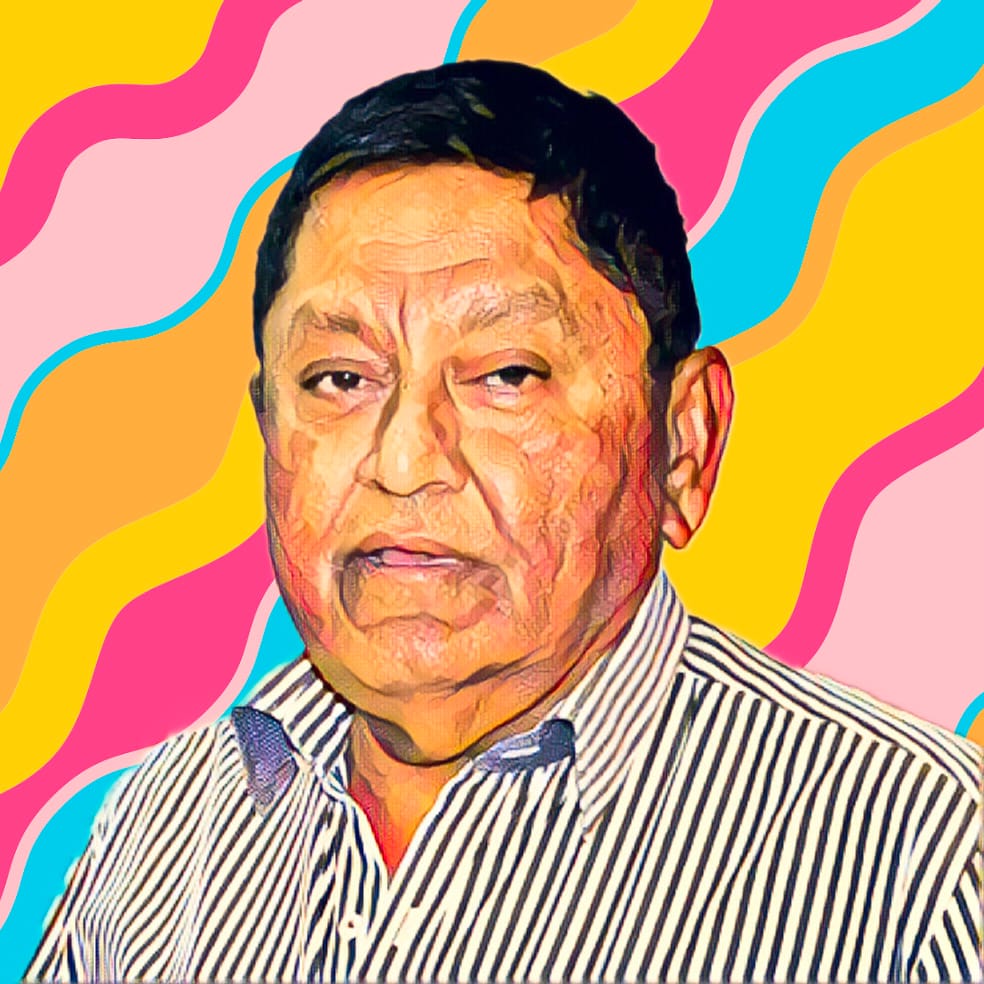
Net Worth: $150 million
Industry: Real Estate, Hospitality, Automotive, Media, Finance
Karim Hirji, one of Uganda’s wealthiest entrepreneurs, amassed a fortune through his diverse business interests. His conglomerate, Dembe Group of Companies, spans sectors such as hospitality, automotive, media, and finance. Hirji is the owner of the Imperial Hotels Group, a leading hotel chain, and Dembe Enterprises, which has expanded into a vast network including a radio station, an automobile dealership, and an amusement park. He also owns Cham Towers, a prominent property in Kampala once known as the Uganda Commercial Bank Towers. Having started in textile trading and later venturing into alcoholic beverages, Hirji’s entrepreneurial vision has shaped Uganda’s business landscape, positioning him as a key figure in the country’s growing economy.
- Sikander Lalani
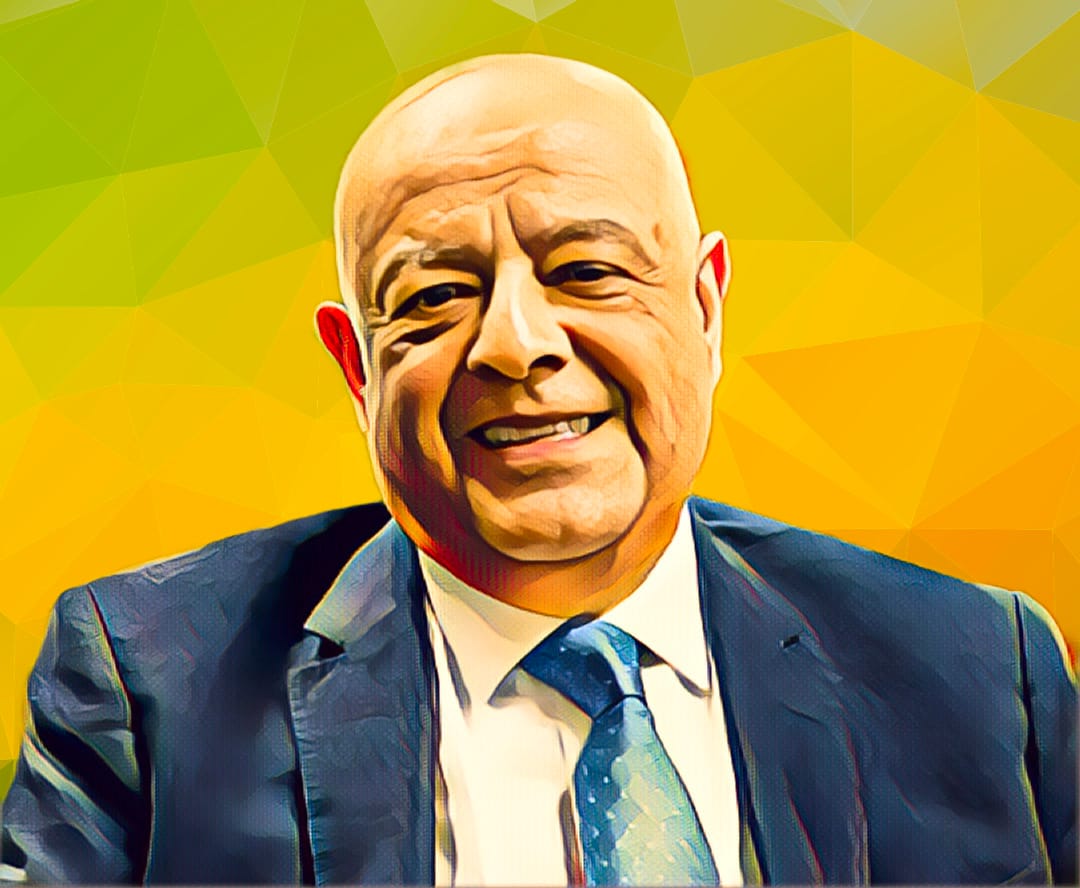
Net Worth: $100 million
Industry: Steel, Manufacturing, Infrastructure
Sikander Lalani, one of Uganda’s wealthiest industrialists, transformed from a trained histopathologist into a manufacturing magnate. After starting out with a Philips electronics store and Goodyear tire distribution in 1970s Rwanda, Lalani ventured into roofing materials production—securing a $1 million World Bank loan to set up his first factory in Kigali. Following the 1994 genocide, he relocated to Uganda, where he founded Roofings Group, now a leading steel conglomerate with three large manufacturing facilities. Over two decades, Lalani has built an empire supplying steel products vital to Uganda’s infrastructure and construction boom. With extensive impact in the manufacturing sector, his entrepreneurial journey—from medicine to industry—underscores his role as a pillar in Uganda’s industrialization.
- Charles Mbire
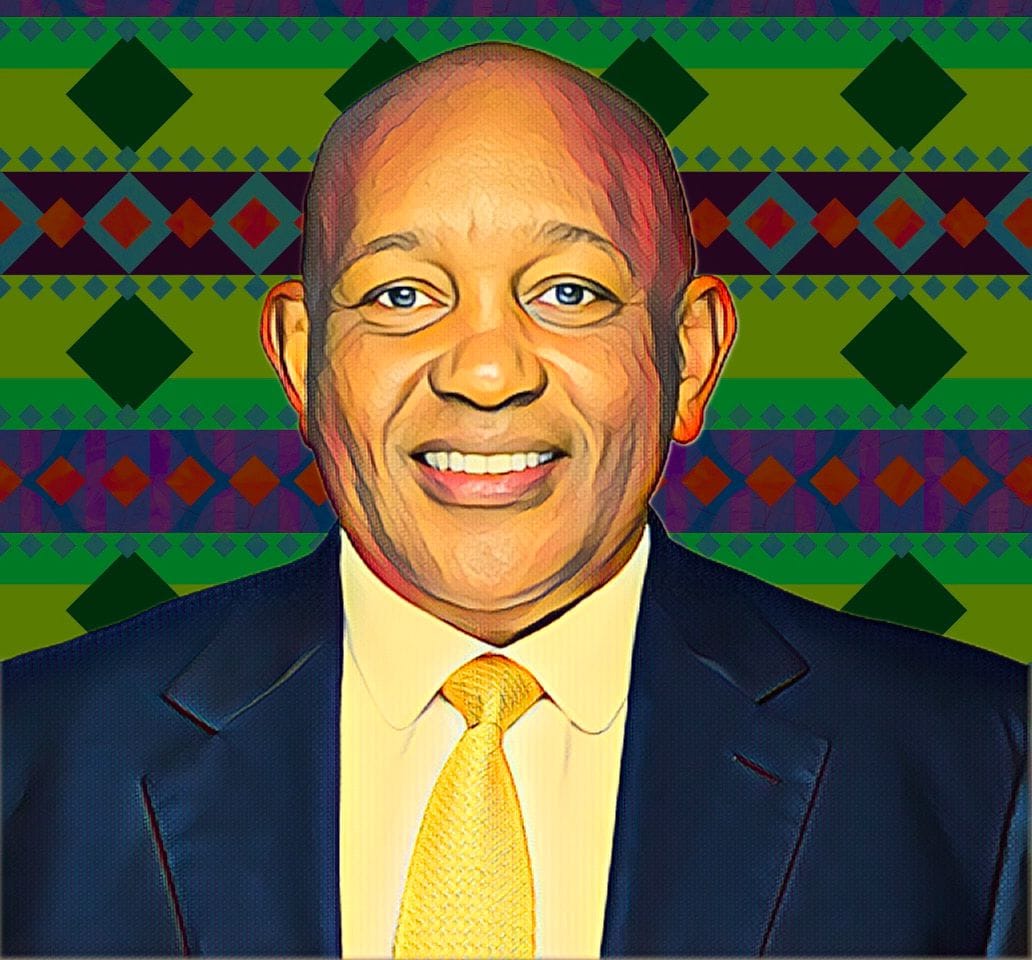
Net Worth: $70 million
Industry: Telecommunications, Energy, Finance, Real Estate, and Diversified Investments
Charles Mbire, Uganda’s wealthiest investor, holds a diversified portfolio spanning telecommunications, energy, finance, and real estate. As the chairman of MTN Uganda, Mbire controls a 4 percent stake—amounting to 895,561,810 shares— in the telecom giant, valued at $66.01 million, despite recent market fluctuations that led to a $3.65 million dip in his holdings. His business acumen extends beyond telecom into sectors like pharmaceuticals, agribusiness, and transportation. A prominent member of the Presidential Investor Roundtable, Mbire’s influence in Uganda’s economic landscape is undeniable. Even amidst volatility, his investments remain strategically positioned for long-term growth, with analysts optimistic about MTN Uganda’s future.
- Drake Lubega
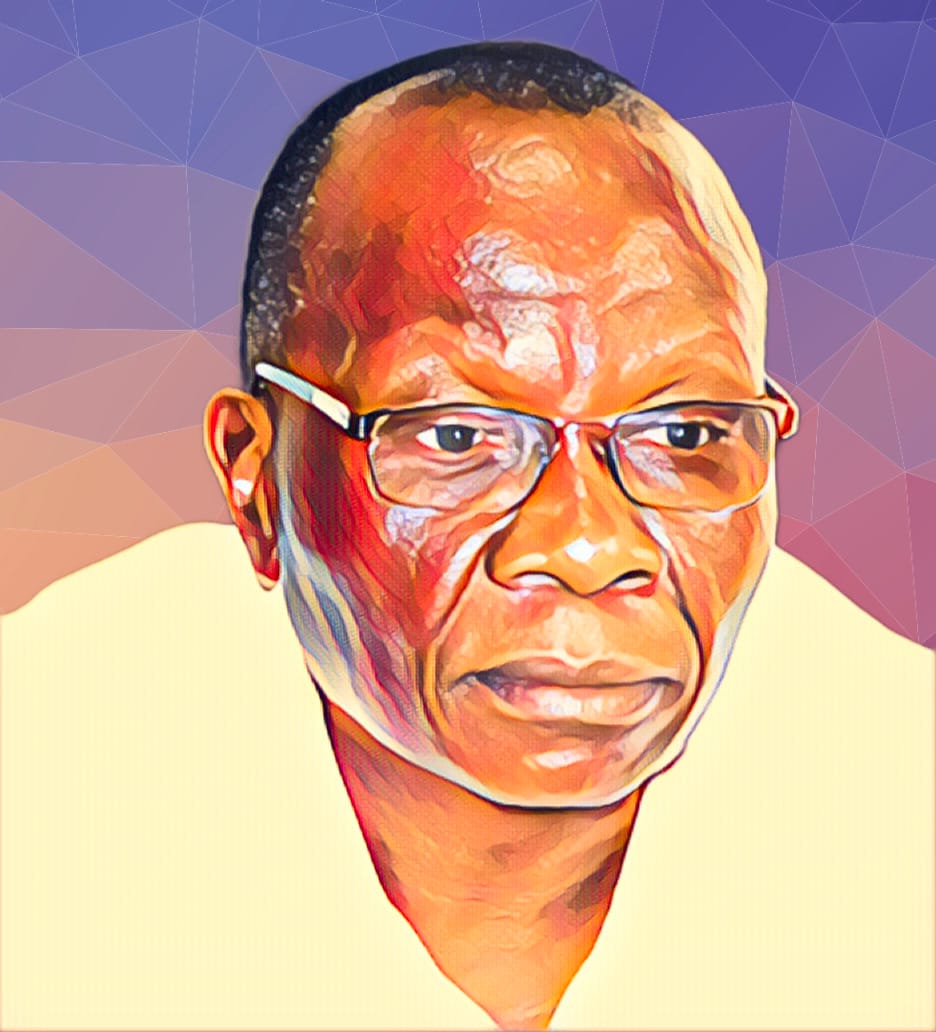
Net Worth: $50 million
Industry: Real Estate, Manufacturing
Drake Lubega, one of Uganda’s richest men, built his fortune through Jesco Industries Limited with a controversial rise as one of Kampala’s key property moguls. This real estate empire owns swaths of land and key commercial properties in Kampala and beyond. Nearly half the buildings in Kampala’s city center are linked to Lubega, reflecting his dominant grip on Uganda’s urban property market. Through Jesco, incorporated in 2005, Lubega has steadily expanded his footprint, leveraging strategic land acquisitions and rental income. Despite a 2019 conviction for producing substandard goods and forging regulatory labels, Lubega’s business influence remains significant. His story is marked by the rapid accumulation of real estate assets and the quiet dominance of Uganda’s skyline, solidifying his place among East Africa’s wealthiest property magnates.
- Amos Nzeyi
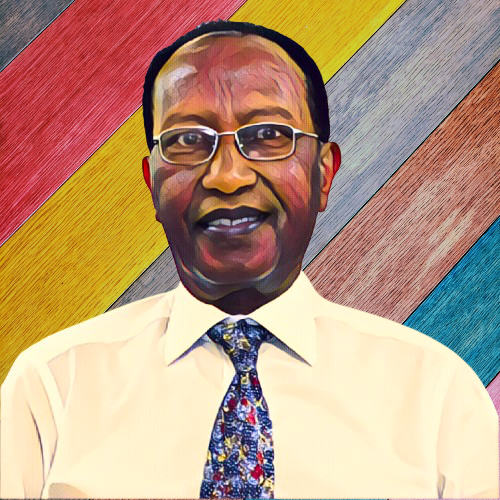
Net Worth: $50 million
Industry: Beverages, Hospitality, Banking, Real Estate, and Manufacturing
Amos Nzeyi, one of Uganda’s wealthiest businessmen, built his fortune across soft drinks, hospitality, and finance. A part-owner and former board chair of Crown Beverages—Uganda’s Pepsi bottler—he also owns Hot Loaf Bakery, a major player in Kampala’s baked goods market, and the historic White Horse Inn in Kabale. Once co-owner of Nandos Uganda and a founding investor in the defunct National Bank of Commerce, Nzeyi’s footprint extended into financial services. He has held influential roles, including board member at Uganda Development Bank and chair of the Uganda Manufacturers’ Association, where he championed industrial growth. In 2018, he became Mauritius’s first Honorary Consul in Uganda, marking a diplomatic milestone. Nzeyi’s legacy is not without controversy. In 2008, he was linked to the Temangalo land deal involving Uganda’s National Social Security Fund. Though the $5.57-million sale went through, it triggered investigations that led to high-level resignations and public scrutiny. Through the Amos Nzeyi Foundation, he funds education for high-achieving students from underprivileged backgrounds in Kigezi. His rise from regional entrepreneur to national business force captures the complexity of Uganda’s capitalist journey—one shaped by ambition, influence, and occasional turbulence.
- Hamis Kiggundu

Net Worth: $40 million
Industry: Real Estate, Agro-processing, Manufacturing, Technology, and Hospitality.
Hamis Kiggundu, a Ugandan businessman and CEO of the Ham Group of Companies, has built a diversified multinational conglomerate with operations across Uganda, South Africa, the USA, Canada, the UK, and Malta. His ventures span real estate, agro-processing, education, logistics, and more, employing over 7,000 people globally. In 2024, his Ham Agro-Processing Industries began setting up Integrated Agro-Processing Industrial Parks (IAIPs) in Uganda’s key agricultural zones, focusing on high-value food processing and export promotion, particularly to markets in the EAC, COMESA, the EU, and the Gulf States. Kiggundu’s efforts to modernize Uganda’s industrial infrastructure and his growing presence in the global market place him as one of the country’s most influential business figures.
- Alykhan Karmali
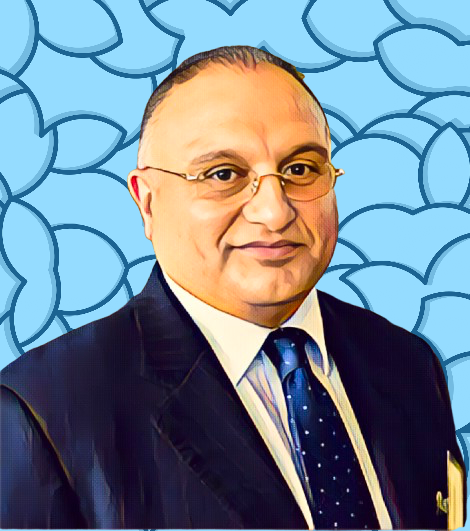
Net Worth: $35 million
Industry: Manufacturing, Real Estate, Banking
Alykhan Karmali, a prominent entrepreneur and philanthropist in Uganda, leads Mukwano Industries Uganda Limited, a diversified industrial conglomerate. With roots in the family business founded by his grandfather, Ali Mohamed Karmali, in the early 20th century, Alykhan has grown Mukwano Group into a major player in Uganda’s manufacturing and real estate sectors. In 1995, Alykhan took the helm of the business after his father, Amirali Karmali, handed it over to him. The group’s growth includes significant investments in sectors like textiles, packaging, and agriculture, cementing its reputation as a key driver of Uganda’s industrial landscape. Beyond his business leadership, Alykhan has been involved in banking as a non-executive director of Exim Bank Uganda, where Mukwano Group holds a 36.5 percent stake. His legacy is built on a foundation of resilience, innovation, and the enduring spirit of entrepreneurship passed down from his grandfather, who was known as “Mukwano gwa Bangi” (Friend of Many).
- Bob Kabonero
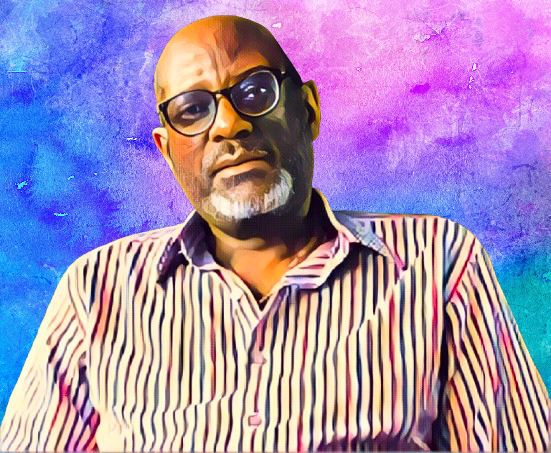
Net Worth: $20 million
Industry: Hospitality, Gaming, Logistics, Education, Diversified Investments
Bob Kabonero, one of Uganda’s most prominent businessmen, has built a diversified fortune across casinos, hospitality, logistics, and education. Anchored by his ownership of Kampala Casino and Pyramids Casino, Kabonero’s wealth also extends to logistics, import trading, and the Europcar franchise in Uganda. He chairs Park Hospitality Limited, the developer behind the upcoming Radisson Blu Hotel Kampala, in partnership with global hotel giant Carlson Rezidor. Kabonero is also the Chairman of Vienna College’s Board of Governors, underscoring his interest in private education. With a Bachelor’s degree in business administration and retail management from Oxford Brookes University, he’s cultivated deep cross-sector influence. As of 2019, his estimated net worth stood at $250 million—placing him among Uganda’s richest, with strategic ties to the political and diplomatic elite through family networks.
- Ahmed Omar Mandela
Net Worth: $20 million
Industry: Hospitality, Oil, Manufacturing, Automotive Services
Ahmed Omar Mandela, one of Uganda’s most influential entrepreneurs, built a multi-sector empire through the Mandela Group of Companies, with major interests in hospitality, oil, manufacturing, and automotive services. His flagship brand, Café Javas, revolutionized Uganda’s dining experience, growing to over 12 locations in Uganda and Kenya, generating an estimated $30 million in annual revenue. Mandela also founded City Oil, a premium fuel distribution company with over 15 stations and revenues exceeding $50 million. Additionally, his automotive ventures sell over 3,000 vehicles annually, solidifying his position as a leading figure in Uganda’s growing economy. Despite setbacks, including a costly expansion into South Sudan, Mandela continues to focus on strategic diversification, aiming to expand into real estate and tech-driven ventures. His disciplined approach to financing and growth underscores his ambition to redefine Uganda’s business landscape.
- Mohammed Hamid
Net Worth: $15 million
Industry: Manufacturing, Logistics, Hospitality, and Agro-industry
Mohammed Hamid, one of Uganda’s wealthiest businessmen, chairs the Aya Group—an industrial conglomerate with interests in food processing, logistics, hospitality, and agro-industry. After arriving in Uganda from Sudan in 1987 to visit his elder brother, Hamid stayed and began building his empire from the ground up. He launched Pan Afric Commodities in the early 1990s, later expanding into wheat milling, baking, and large-scale trucking across East and Central Africa through Panafric Transport. In 1997, he acquired 15 acres in Kawempe, Kampala, where he established a milling hub that would later evolve into a diversified manufacturing base. His landmark venture, Aya Investments, developed the $300 million Pearl of Africa Hotel—an architectural icon launched in 2017 by President Yoweri Museveni. Hamid’s foresight and vertical integration strategy have made Aya Group a formidable player in Uganda’s private sector. In 2018, Forbes named him among the top five young African millionaires to watch.
- Godfrey Kirumira
Net Worth: $10 million
Industry: Fuel, Real Estate, Merchandise, Private Security, Import/Export
Godfrey Kirumira, a prominent Ugandan businessman, commands a diversified portfolio through the GKK Group of Companies, with interests spanning fuel, real estate, and private security. His company, Bargary Company Limited, operates twelve petrol stations under the Gelp brand, both within and outside Kampala. Kirumira also controls Nabugabo Updeal Venture Limited, a significant player in general merchandise and import/export. As the chairman of Kwagalana Group, a club of Uganda’s wealthiest tycoons, Kirumira plays a central role in shaping the country’s business landscape. His entrepreneurial journey is underpinned by a strong commitment to empowerment and prosperity, aligned with his philanthropic efforts. His influence as a businessman and Honorary Consul of Namibia to Uganda remains a defining aspect of his legacy.
- Gordon Wavamunno
Net Worth: $10 million
Industry: Automotive, Manufacturing, Media, Real Estate, Agriculture
Gordon Wavamunno, one of Uganda’s most prominent entrepreneurs, built a diversified business empire anchored by Spear Motors—the country’s exclusive distributor of Mercedes-Benz vehicles. After launching the dealership in 1973, just a year after Idi Amin expelled Ugandan Asians, Wavamunno expanded Spear Motors to represent global brands like Jeep, Dodge, Chrysler, Fiat, and Deutz Fahr. His business interests span manufacturing (GM Tumpeco), publishing (Wavah Books), broadcasting (Wavah FM), water production (Wavah Water), and commercial real estate (Spear House). A former tour guide turned business magnate, Wavamunno also served as Hungary’s honorary consul to Uganda and played a pivotal role in Uganda’s media sector through WBS Television. He is a professor of entrepreneurship at Makerere University and the chancellor of Nkumba University. Knighted for his philanthropic efforts with the St. John Association of Uganda, Wavamunno has donated ambulances, awarded bursaries, and supported public health. His rise from retail shop assistant to industrial powerhouse reflects a lifelong commitment to enterprise, education, and national development.
- George W. Baguma
Net Worth: $2.4 million
Industry: Pharmaceuticals, Public Health, Agribusiness
George W. Baguma is a Ugandan businessman and co-founder of Cipla Quality Chemical Industries Limited (CiplaQCIL), East Africa’s only WHO-certified pharmaceutical manufacturer. He serves as the company’s chief commercial officer and director of marketing and sits on its board. Baguma holds a bachelor’s degree and diploma from Makerere University, as well as an MSc in entomology and a PhD in parasitology from Imperial College London. He began his career as Deputy Commissioner in Uganda’s Ministry of Agriculture before joining Quality Chemicals Limited in 2000. His transition into the private sector played a key role in Uganda’s pharmaceutical development. As of 2024, Baguma holds a 2.79 percent equity stake in CiplaQCIL—equivalent to 101,933,042 shares—valued at approximately USh8.87 billion ($2.42 million). His expertise in public health and commercial strategy continues to support CiplaQCIL’s regional expansion and contribution to essential drug manufacturing.
- Emmanuel Katongole
Net Worth: $2 million
Industry: Pharmaceuticals, Energy, Finance, Governance
Emmanuel Katongole, one of Uganda’s foremost industrialists, is co-founder and Executive Chairman of Cipla Quality Chemical Industries Limited (CiplaQCIL)—East Africa’s leading producer of antiretrovirals and malaria medications. His 2.79 percent stake in the company, once valued at $2.4 million, has dipped below $2 million following a sharp decline in CiplaQCIL’s share price on the Uganda Stock Exchange. Despite stock volatility, Katongole remains a pillar of Uganda’s healthcare sovereignty, having helped localize the production of vital HIV, malaria, and Hepatitis B treatments. His leadership extends to energy and national policy—serving as Chairman of the Uganda National Oil Company and advising global finance firm TLG Capital. In 2024, his election to the board of Rotary International cemented his global leadership stature.
Crédito: Link de origem


